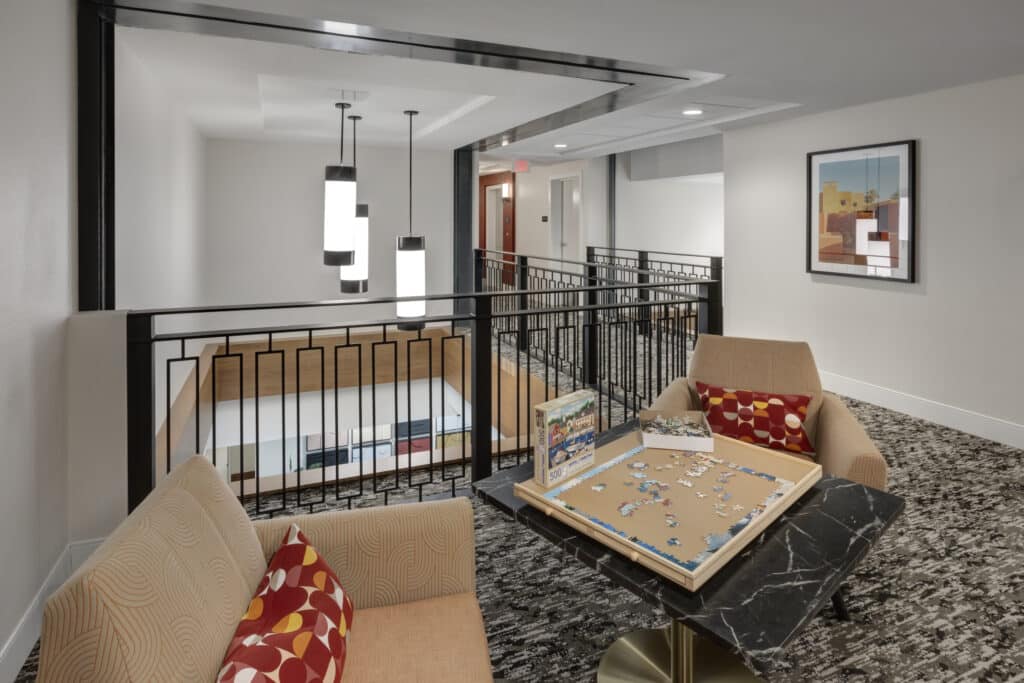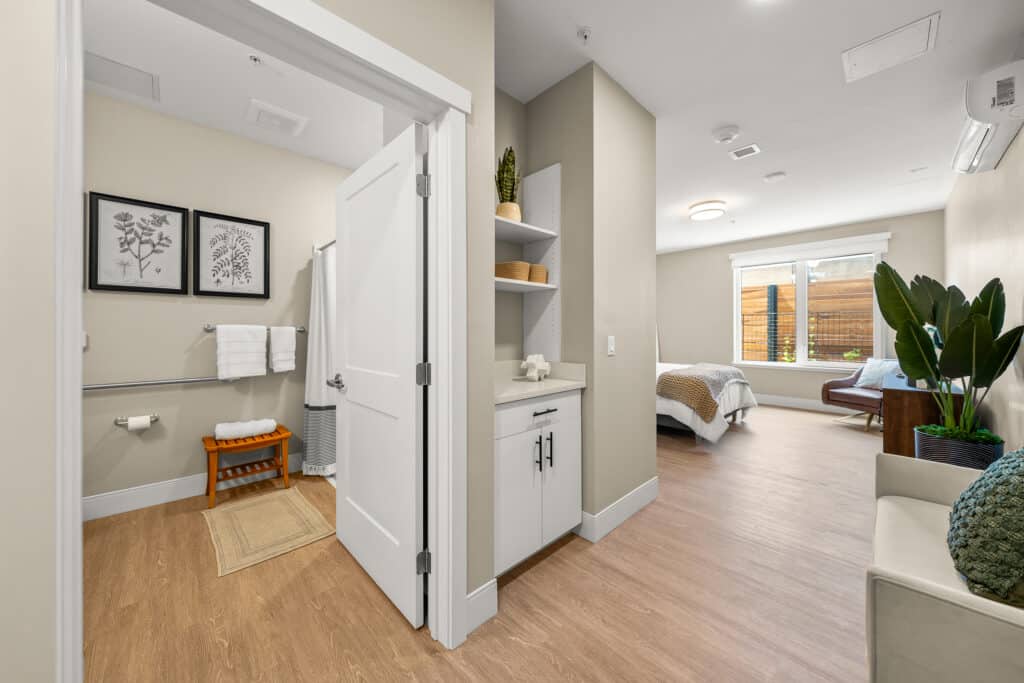Senior housing is a transformative step in providing older adults with comfort, security, and independence, tailored to match lifestyle needs and personal preferences. At Westmont of Culver City, we understand that finding the right place to call home is not just about location—it’s about community, support, and overall well-being.
In this guide, you’ll learn what senior housing is, explore key features, compare it with other living arrangements, and discover how to choose the best option. Whether you’re exploring this for yourself or a loved one, it’s essential to understand the benefits and variations available, especially if you’re seeking senior housing near you.
Learn more by visiting Westmont of Culver City.
Understanding What Is Senior Housing
When asking what senior housing is, think of it as a living environment designed exclusively for older adults that supports independence while offering access to services and community life. These communities provide secure and often affordable living spaces, allowing seniors to age gracefully and comfortably.
A core element of what senior housing is for seniors is the balance between privacy and connection. At Westmont of Culver City, residents live in individual apartments while also benefiting from shared community amenities. This ensures they enjoy autonomy and social engagement on their terms.
For example, many communities—including ours—feature wellness programs that support physical, emotional, and mental health. This structure provides peace of mind for both residents and their families.
Key Features of Senior Housing
While every community differs, some universal traits define what is senior housing for rent and why it’s becoming such a popular choice:
- Private Apartments: Residents enjoy their own space within a secure building, promoting independence while ensuring safety.
- Community Design: Senior housing is laid out to encourage interaction through communal areas, gardens, lounges, and dining halls.
- Safety and Accessibility: Buildings are equipped with features like grab bars, elevators, and emergency response systems.
- Maintenance-Free Living: Most communities handle all landscaping, cleaning, and general repairs.
- Lifestyle Amenities: These may include fitness centers, transportation, activity schedules, and personalized care plans for residents who require more assistance.
With so many benefits tailored to the aging population, it’s no surprise that more families are asking, what is senior housing assistance, especially when cost-effective options are needed.
The Benefits of Senior Housing Communities
Opting for senior housing provides more than just a new address—it’s an upgrade in lifestyle and peace of mind.
1. Socialization and Connection
Communities like Westmont foster opportunities for connection through group activities and casual social interaction. This environment combats loneliness and fosters friendships among peers.
2. Independence with Support
A major reason people explore what is senior housing near you is to maintain their independence without sacrificing safety. Residents can participate in community life while receiving support only when needed.
3. Affordable Living Options
Many are surprised to learn how flexible senior housing pricing can be. Whether you’re interested in luxury apartments or budget-conscious solutions, there’s a fit for every financial situation. Some communities even offer low-income housing options supported by local government programs. Learn more from SeniorHousingNet, a valuable external resource for financial planning and housing types.
Additionally, amenities and activities help residents remain active and engaged.

Comparing Senior Housing and Senior Living
While the terms “senior housing” and “senior living” are often used interchangeably, they serve slightly different needs.
| Feature | Senior Housing | Senior Living |
| Community | Independent, self-paced | More structured, social events |
| Services | Limited to optional care | Often includes meals, transport, and healthcare |
| Cost | More budget-friendly | Varies by level of care |
If you’re still asking what senior housing is for seniors versus senior living, it’s important to evaluate your or your loved one’s daily needs. Housing may work better for those who are self-sufficient, while senior living may be ideal for those needing daily assistance.
To understand the full care range in senior living, explore this article on assisted living care.
Factors to Consider When Choosing Senior Housing
When evaluating what senior housing assistance is, keep these core questions in mind:
1. What Level of Support Is Needed?
Are you looking for completely independent living, or do you require some assistance with daily activities? Assisted living or memory care might be better if medical needs are involved.
2. Location and Proximity to Family
Searching for senior housing near you can help you remain close to loved ones. Proximity makes visits easier and fosters a sense of continued connection.
3. Affordability and Rental Options
Understanding what senior housing for rent is can reveal flexible monthly plans based on your budget and care needs. Always ask if utilities, meals, and activities are included in the price.
Westmont of Culver City helps families navigate these factors by offering tailored care options that prioritize dignity, independence, and health.
How to Get Started with Senior Housing
Now that you’ve learned what senior housing is, your next step is to evaluate which community feels like the best fit. Start by:
- Scheduling a tour to get a feel for the environment
- Speaking with current residents, if possible
- Asking about senior housing assistance programs available
- Inquiring about available units and how quickly you can move in
Need help with planning? The National Council on Aging offers tools and resources to explore low-cost housing, financial aid, and tips for families navigating senior care options.
Embrace a New Chapter in a Community That Cares
Finding a place that feels like home is more than just securing a roof overhead—it’s about embracing a lifestyle that supports well-being, dignity, and joy. At Westmont of Culver City, we believe in empowering our residents to live independently while fostering community and care.
So whether you’re exploring what is senior housing near you, evaluating what is senior housing for seniors, or needing clarity on what is senior housing for rent, we’re here to guide you every step of the way.
To learn more or to schedule a tour, please call us at 310-736-4118 or visit this link.
How Do The Costs Of Moving Into A Quality Senior Care Community Compare With The Costs Of Staying At Home?Compare The Costs of Senior Living vs Staying at Home
Frequently Asked Questions
What is the meaning of senior housing?
Senior housing refers to residential communities or accommodations specifically designed for older adults, typically aged 55 and up. These housing options provide a safe, age-appropriate living environment that may include services such as housekeeping, transportation, meals, or healthcare. Senior housing can range from independent living to assisted living or skilled nursing care. The goal is to support seniors in maintaining independence while ensuring their comfort and safety.
What is the meaning of senior house?
A senior house generally refers to a home or facility tailored to meet the needs of older adults. It may be a standalone residence, a part of a senior living community, or a specialized facility offering services like assisted living or memory care. These houses are designed with features like minimal stairs, grab bars, and emergency call systems for safety and accessibility. The purpose is to provide seniors with a comfortable and supportive environment that enhances their quality of life.
Who qualifies for senior housing in California?
In California, eligibility for senior housing usually starts at age 55 or older, though some communities may require at least one household member to be 62+. Other factors such as income level, health needs, and level of independence can determine qualification, especially for government-subsidized housing. Certain types of senior housing may require medical assessments or income verification. Each community or program has its own criteria, so it’s best to check directly with the provider.
Who pays for senior housing?
The cost of senior housing is typically paid by the residents themselves, using personal savings, retirement funds, or income. In some cases, family members may contribute financially. Government programs like Medicaid or Section 8 may help cover costs for low-income seniors, particularly for assisted living or nursing homes. Long-term care insurance can also be used if the senior qualifies under their policy.








